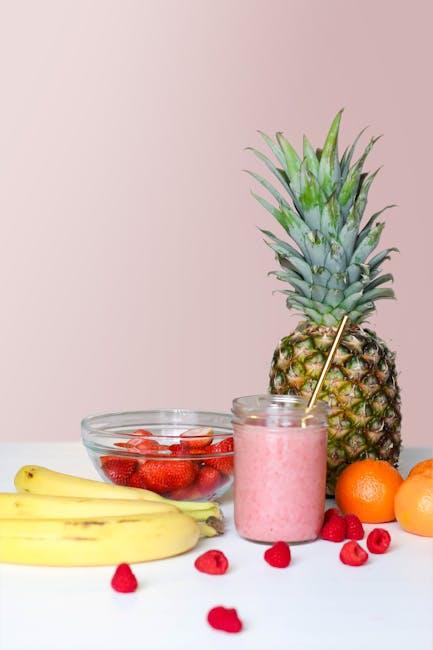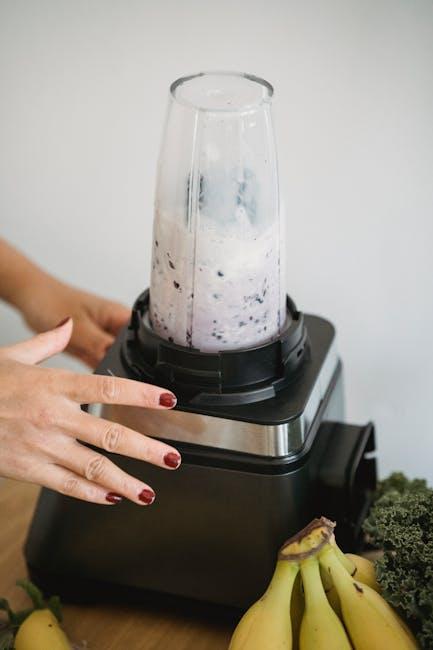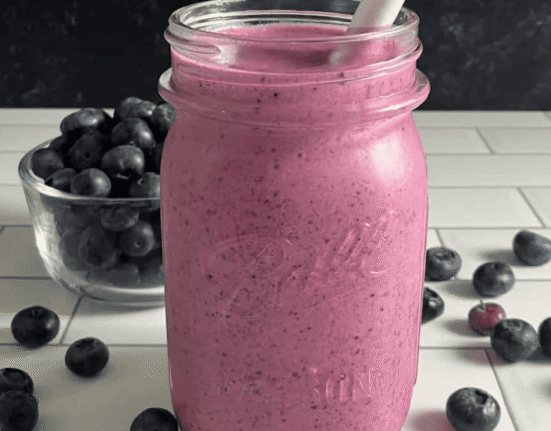In a world buzzing with ever-changing health trends, the idea of a gut detox has gained significant attention as a way to refresh our digestive system and promote overall well-being. But amid the flood of advice and quick-fix promises, how can one navigate the path to a cleaner gut without risking discomfort or imbalance? This article explores the art of doing a gut detox safely—offering thoughtful guidance that honors both the complexity of our digestive systems and the unique rhythms of our bodies. Whether you’re a curious newcomer or a seasoned wellness seeker, join us as we unravel practical steps to cleanse thoughtfully, sustainably, and with care.
Table of Contents
- Understanding the Basics of Gut Detox and Its Benefits
- Choosing Natural Ingredients to Support Your Gut Health
- Step by Step Guide to Preparing Your Gut Detox Routine
- Recognizing Signs Your Gut Detox Is Working Effectively
- Post Detox Care for Long-Term Digestive Wellness
- Q&A
- In Summary

Understanding the Basics of Gut Detox and Its Benefits
Detoxifying your gut isn’t about drastic measures; it’s about nurturing your digestive system to function at its best. At its core, gut detox focuses on cleansing the intestines from accumulated waste, toxins, and imbalanced bacteria, which can interfere with nutrient absorption and overall health. This natural reset can lead to sharper digestion, reduced bloating, and even improved mental clarity, as the gut is closely connected to the brain through the gut-brain axis.
A successful gut detox involves several key aspects to keep in balance:
- Hydration: Drinking plenty of water helps flush out toxins gently and supports detox pathways.
- Fiber intake: Consuming soluble and insoluble fibers encourages healthy bowel movements.
- Probiotics: Introducing good bacteria helps restore gut flora balance, essential for digestion and immunity.
- Elimination of processed foods and sugars: Minimizing these prevents inflammation and feeds harmful bacteria.
- Mindful eating: Slowing down to chew properly enhances digestive enzyme function and nutrient absorption.

Choosing Natural Ingredients to Support Your Gut Health
When aiming to refresh your digestive system, it’s essential to turn to nature’s bounty for assistance. Incorporating whole foods rich in fiber, antioxidants, and prebiotics creates a nurturing environment for beneficial gut bacteria. Think of ingredients like artichoke, chicory root, and garlic — these natural wonders are excellent sources of inulin and other prebiotics that naturally feed your microbiome. Including a rainbow of fruits and vegetables such as berries, apples, and leafy greens ensures you’re supplying your gut with the vitamins and minerals needed to thrive during detoxification.
Besides fiber, the addition of gentle anti-inflammatory and detoxifying herbs can greatly enhance the cleansing process without causing irritation. Ingredients like ginger, turmeric, and peppermint not only support digestion but also soothe the gut lining and reduce oxidative stress. It’s important to respect your body’s pace — starting with smaller doses and observing how your system reacts will help you avoid overwhelming your digestive tract. Below is a simple guide highlighting some natural ingredients and their gut-supportive benefits:
| Ingredient | Primary Benefit | Best Usage Tip |
|---|---|---|
| Chicory Root | Prebiotic fiber | Drink as a tea or coffee substitute |
| Ginger | Anti-inflammatory, aids digestion | Add fresh slices to warm water or meals |
| Turmeric | Reduces gut inflammation | Combine with black pepper for absorption |
| Apple | Soluble fiber for stool regulation | Eat raw or baked with skin on |

Step by Step Guide to Preparing Your Gut Detox Routine
Begin by gradually eliminating processed foods, excess sugar, and artificial additives from your diet to prevent shock to your system. Incorporate gentle, fiber-rich foods such as leafy greens, chia seeds, and flaxseeds that encourage healthy digestion. Staying well-hydrated is crucial; aim for at least 8 glasses of water daily to help flush toxins effectively. Don’t forget to include probiotic-rich foods like yogurt, kimchi, or kefir to restore beneficial gut bacteria, supporting the natural detox process.
- Hydrate: Drink plenty of water and herbal teas.
- Eat clean: Focus on whole, unprocessed foods.
- Add fiber: Boost digestion with fruits and veggies.
- Include probiotics: Help balance gut microbiome.
Next, establish a daily routine that supports your gut health by integrating habits such as exercise, stress reduction, and adequate sleep. Physical activity helps stimulate bowel movements and circulation, while mindfulness techniques like meditation can reduce harmful stress hormones that disrupt digestion. Additionally, consider natural supplements like aloe vera juice or slippery elm after consulting a healthcare professional, as these can soothe the digestive tract during detox. Track your progress with a simple table to monitor what works best for your body.
| Day | Foods Included | Energy Level | Notes |
|---|---|---|---|
| 1 | Fruits, Greens, Herbal Tea | Moderate | Slight digestion adjustment |
| 2 | Added Yogurt & Chia | High | Improved digestion |
| 3 | Vegetables, Aloe Vera | High | Feeling energized |

Recognizing Signs Your Gut Detox Is Working Effectively
As your gut detox progresses, you may notice subtle yet encouraging changes that indicate your digestive system is on the path to healing. One of the clearest signs is an improvement in regularity—stool consistency may become more uniform, and you might experience fewer bloating episodes. Alongside this, many people report enhanced energy levels, a reflection of better nutrient absorption and reduced gut inflammation. Keep an eye out for a decrease in digestive discomfort such as gas or cramping, which often signals toxins are being effectively flushed out.
Beyond digestive markers, your overall wellness starts to shine through. Your skin might appear clearer and more vibrant, highlighting the gut-skin connection critical to detox success. Additionally, a stabilized mood and reduced brain fog are common benefits as gut bacteria balance improves. To help track these positive changes, consider this simple checklist:
- Consistent, comfortable digestion without irregularity or sharp discomfort
- Renewed energy and reduced fatigue throughout the day
- Improved skin texture free from redness or breakouts
- Balanced mood with clearer mental focus

Post Detox Care for Long-Term Digestive Wellness
Once your gut detox concludes, nurturing your digestive system with mindful habits is key to long-lasting wellness. Prioritize a diet rich in prebiotic and probiotic foods, such as yogurt, sauerkraut, and bananas, to help replenish beneficial bacteria. Gradually reintroduce fiber-rich ingredients to avoid overwhelming your system, and maintain hydration with plenty of water and herbal teas. Equally important is managing stress through practices like meditation or gentle yoga, as stress hormones can disrupt gut balance and slow healing.
Incorporate the following essentials into your post-detox routine to support continued digestive harmony:
- Consistent Meal Timing: Stabilizes your gut clock and aids digestion.
- Moderate Physical Activity: Enhances gut motility and reduces bloating.
- Avoid Processed Foods: Limits exposure to irritants and artificial additives.
- Regular Sleep Schedule: Boosts immune response and microbiota balance.
| Care Tip | Benefits |
|---|---|
| Hydration | Enhances nutrient absorption and toxin elimination |
| Fiber Intake | Supports regular bowel movements and microbial diversity |
| Mindful Eating | Prevents overeating and improves digestive enzyme activity |
Q&A
Q&A: How to Do a Gut Detox Safely
Q1: What exactly is a gut detox?
A gut detox is a process aimed at cleansing your digestive system by removing toxins, excess waste, and harmful bacteria to promote better digestion, increased energy, and overall health.
Q2: Why should I consider doing a gut detox?
People choose gut detoxes to reset their digestive system, reduce bloating, improve nutrient absorption, and support a balanced gut microbiome, which can positively affect mood and immunity.
Q3: Is a gut detox necessary for everyone?
Not necessarily. If you have a balanced diet, good digestion, and no health issues, a strict detox might not be needed. However, if you experience digestive discomfort, fatigue, or frequent bloating, a gentle detox could help.
Q4: How can I detox my gut safely?
Start with a diet rich in fiber, fresh fruits, vegetables, and plenty of water. Incorporate probiotics from fermented foods to nourish good bacteria. Avoid harsh cleanses or fasting extremes. Listening to your body is key.
Q5: What foods should I include during a gut detox?
Focus on leafy greens, berries, nuts, seeds, whole grains, and fermented foods like yogurt, kimchi, or sauerkraut. These support gut health by feeding beneficial bacteria and aiding regular bowel movements.
Q6: Are there foods I should avoid?
Limit processed foods, excessive sugar, alcohol, caffeine, and artificial sweeteners during your detox, as they can irritate the gut lining and disrupt your microbiome balance.
Q7: How long should a gut detox last?
A gentle gut detox can range from a few days to two weeks. Prolonged detoxes without medical supervision are not recommended as they might lead to nutrient deficiencies or imbalanced gut flora.
Q8: Can I take supplements during a gut detox?
Certain supplements like probiotics, digestive enzymes, and herbal teas (ginger, peppermint) can support your detox. However, consult a healthcare provider before starting any new supplement.
Q9: What are the signs that my gut detox is working?
You might notice less bloating, more regular digestion, increased energy, and improved mood—signs your gut is responding positively to the reset.
Q10: When should I avoid doing a gut detox?
If you are pregnant, have a chronic illness, or a compromised immune system, speak with your healthcare provider first. Also, avoid intense detoxes if you have a history of eating disorders or poor nutrition.
Q11: What are some gentle practices to support gut health daily?
Eat mindfully, stay hydrated, manage stress through meditation or exercise, get enough sleep, and maintain a balanced diet to keep your gut thriving without drastic detoxes.
A gut detox doesn’t have to mean extreme measures—think of it as a gentle reboot to nurture your digestive wellness. Always prioritize safety and listen to your body’s unique rhythms.
In Summary
Embarking on a gut detox journey can feel like hitting the reset button for your digestive health, but remember—true wellness thrives on balance, not extremes. By choosing safe, thoughtful methods and listening closely to your body’s signals, you set the stage for a happier gut and a revitalized you. So, as you step forward, armed with knowledge and care, let your detox be a gentle, empowering reset rather than a rush to results. After all, the best health story is one written with patience, respect, and a dash of self-kindness.














Leave feedback about this